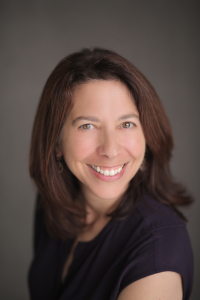Krisanne Vaillancourt-Murphy, Bread for the World
I have three kids and work full time, so like many moms, I try to maximize the efficiency of my children’s routine doctor visits. Jacob, Matthew, and Sarah file into one exam room together for their yearly check-ups. One, two, three exams and we’re finished. Done.
However, a couple of years ago, a flawlessly planned family trifecta of appointments was instead interrupted by Murphy’s Law (note my last name). It was also a profound ah-ha moment. Dr. Ratner told me that each of my children needed vaccination shots. Murphy vaccinations are never smooth or simple, and here we were with three kids getting shots at the same time.
As a mother, I thought to myself, How in the world is this going to play out without absolute chaos, tears, and drama? Short answer is that it played out exactly as I feared. There was a veritable Murphy family meltdown in exam room 2 at Children’s Pediatricians & Associates that day.
Like every mother would, I felt awful that my kids feared the needles and the pinches associated with them. I found myself crying along with my kids, but it wasn’t for their pinches or their drama. Actually, my tears were because I realized right then that the shots were lifesaving, a form of privilege that so many children around the globe don’t have. After working at Bread for the World for over a decade, the statistics related to children who die from preventable diseases are quite real and even numbing sometimes. Every five seconds a child dies from preventable causes.
So there I sat, consoling my crying (screaming) kids and giving them hugs, yet painfully aware of the privilege my children “enjoyed” that day. On the occasion of this routine doctor’s visit, my children were three little faces of the “surviving and thriving” statistic. Each born into this privilege due to a series of factors having nothing to do with them. Grateful, humbled, and horrified all at once. That was the reason for my tears.
I’ve thought of that day many times since Bread has launched this year’s Offering of Letters: Survive and Thrive. The inoculations we have easy access to are not a universal right. My children will not only survive but will thrive because their growing bodies and minds have never known a day of hunger. Nutrition is the first and foremost building block for healthy children to flourish and live into their God-given potential. My children. Our children. God’s children.
If all of God’s creation is to thrive, the U.S. Congress must invest in global nutrition. Congress should increase funding in the Nutrition Programs in the Global Health Account to at least $230 million and robustly fund the mother and child health sub-account, which includes vaccinations for children. That is why many people of faith are joining Bread for the World on June 7 to deliver our message directly Capitol Hill. You can join us-in person or from wherever you are.
Together, let’s make sure that all children can thrive.
Krisanne Vaillancourt Murphy is senior associate for national Catholic engagement at Bread for the World.
This blog post was adapted for ToGoForth. Read the original version on the Bread for the World blog.
 Say the words “payday lender” and stories of friends, family members, or neighbors who sought quick loans to make ends meet and ended up caught in a devastating cycle of debt will begin to flow. Often, these stories begin with someone living paycheck to paycheck and unsure how to make a rent payment, buy food, pay bills, and cover other expenses short term. The tales end with harassing phone calls and court filings for repayment of ridiculously high-interest rate loans, and mounting debts that now include court costs.
Say the words “payday lender” and stories of friends, family members, or neighbors who sought quick loans to make ends meet and ended up caught in a devastating cycle of debt will begin to flow. Often, these stories begin with someone living paycheck to paycheck and unsure how to make a rent payment, buy food, pay bills, and cover other expenses short term. The tales end with harassing phone calls and court filings for repayment of ridiculously high-interest rate loans, and mounting debts that now include court costs. Marco Raposo is Diocesan Director of the Peace and Justice Ministry in the Diocese of El Paso.
Marco Raposo is Diocesan Director of the Peace and Justice Ministry in the Diocese of El Paso.